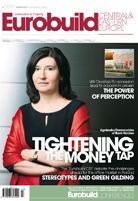Rankings tempt us with their answers to simple questions, such as which cities offer the best investment prospects (the 'Emerging Trends in Real Estate Europe' report drawn up by PwC and the Urban Land Institute), which cities are the most expensive office locations in the world (the 'Office Space Across the World' report of Cushman & Wakefield), which cities are the fastest and the slowest developing ones (the 'Global Metro Monitor' report published by Brookings).The problem with the various rankings is that their creators analyse different data. Consequently the same cities can sometimes be the leaders and sometimes the losers. Of course, it could be said that this is a good thing because it would be very difficult to definitively draw up the most reliable and objective ranking. Indeed, it is not even possible. But one unquestionable leader emerges when you peruse the most recently published reports. It is Warsaw.Examples? Let's take a look at the PwC report on the best investment pr




























































